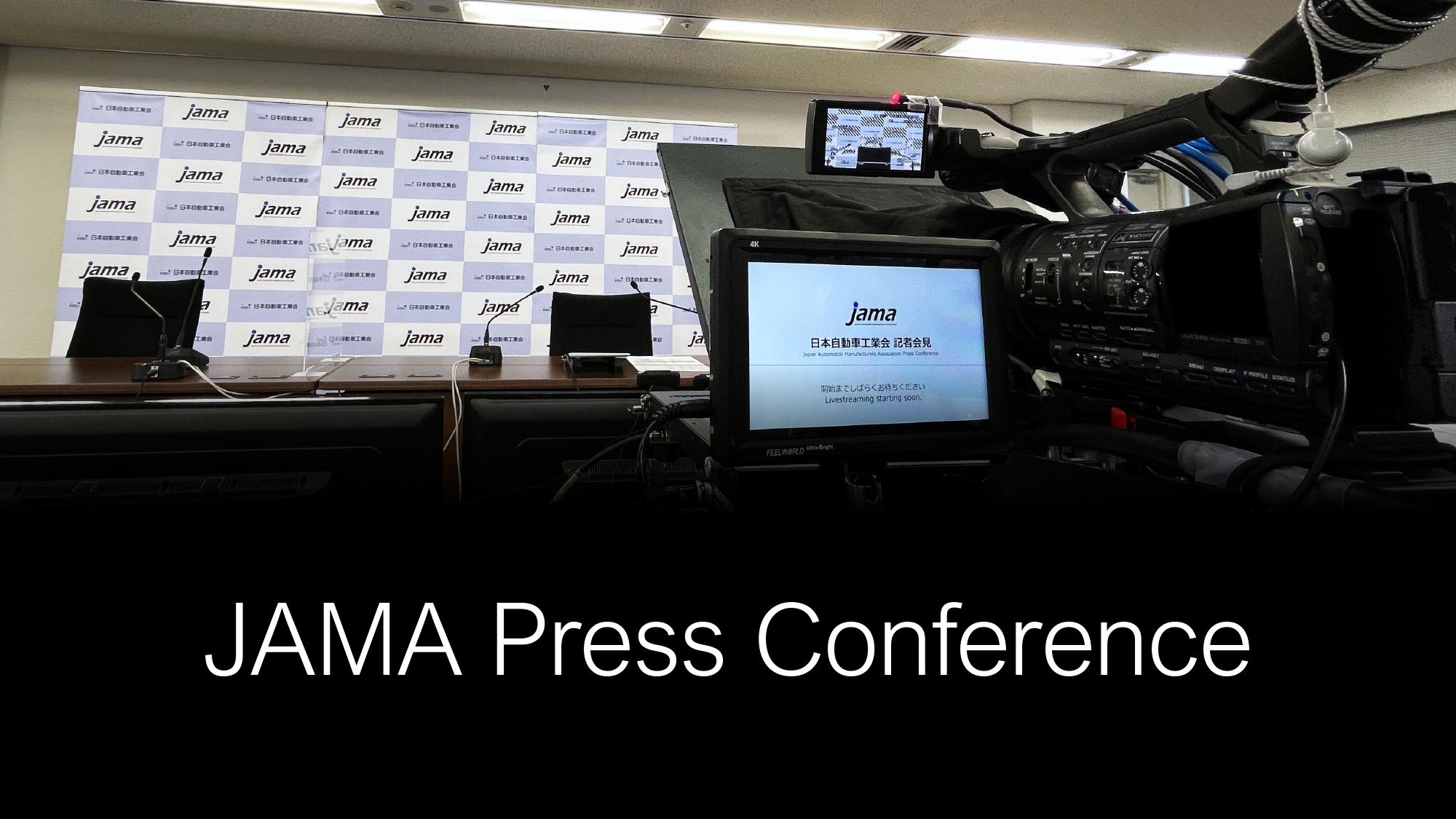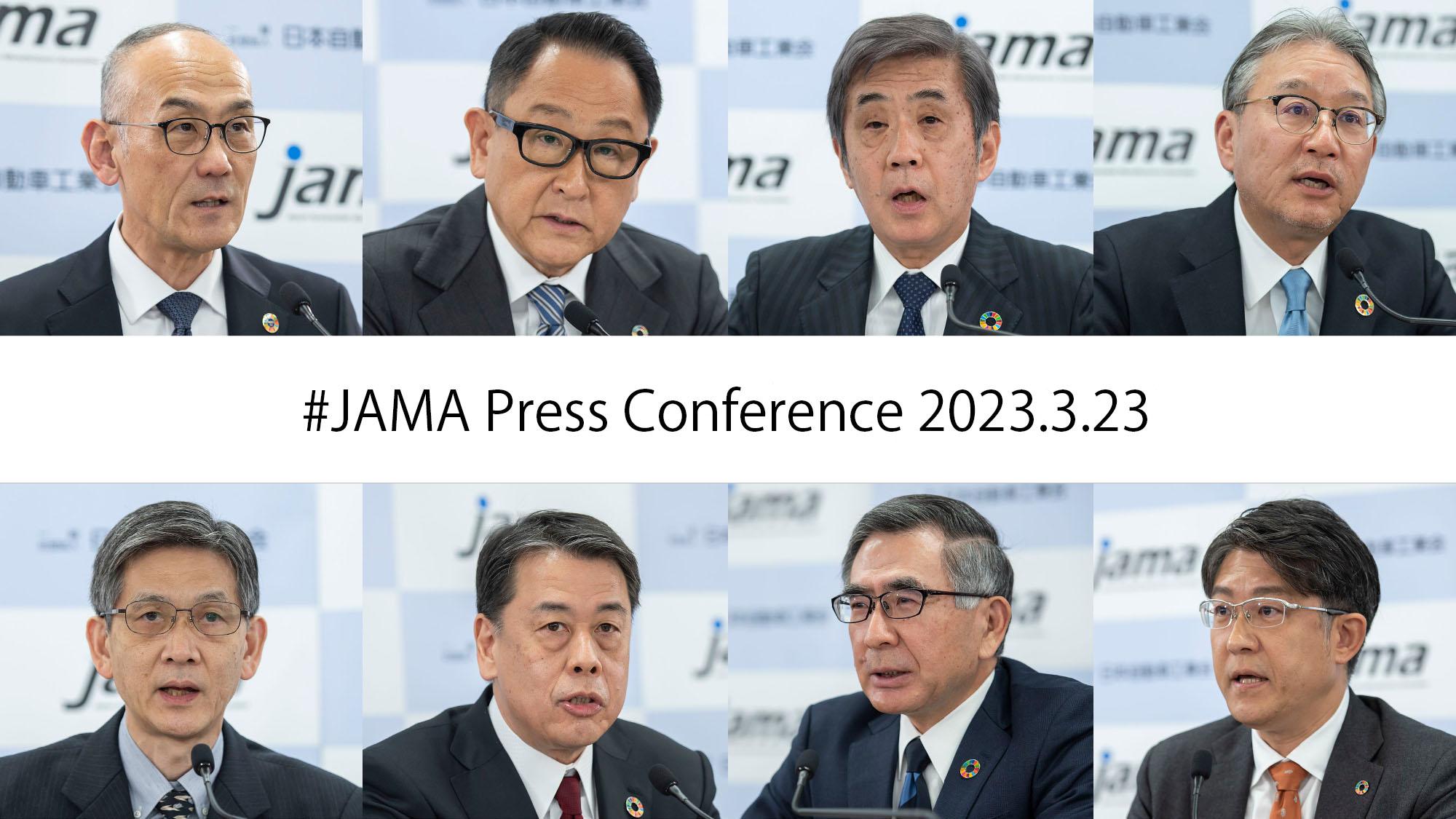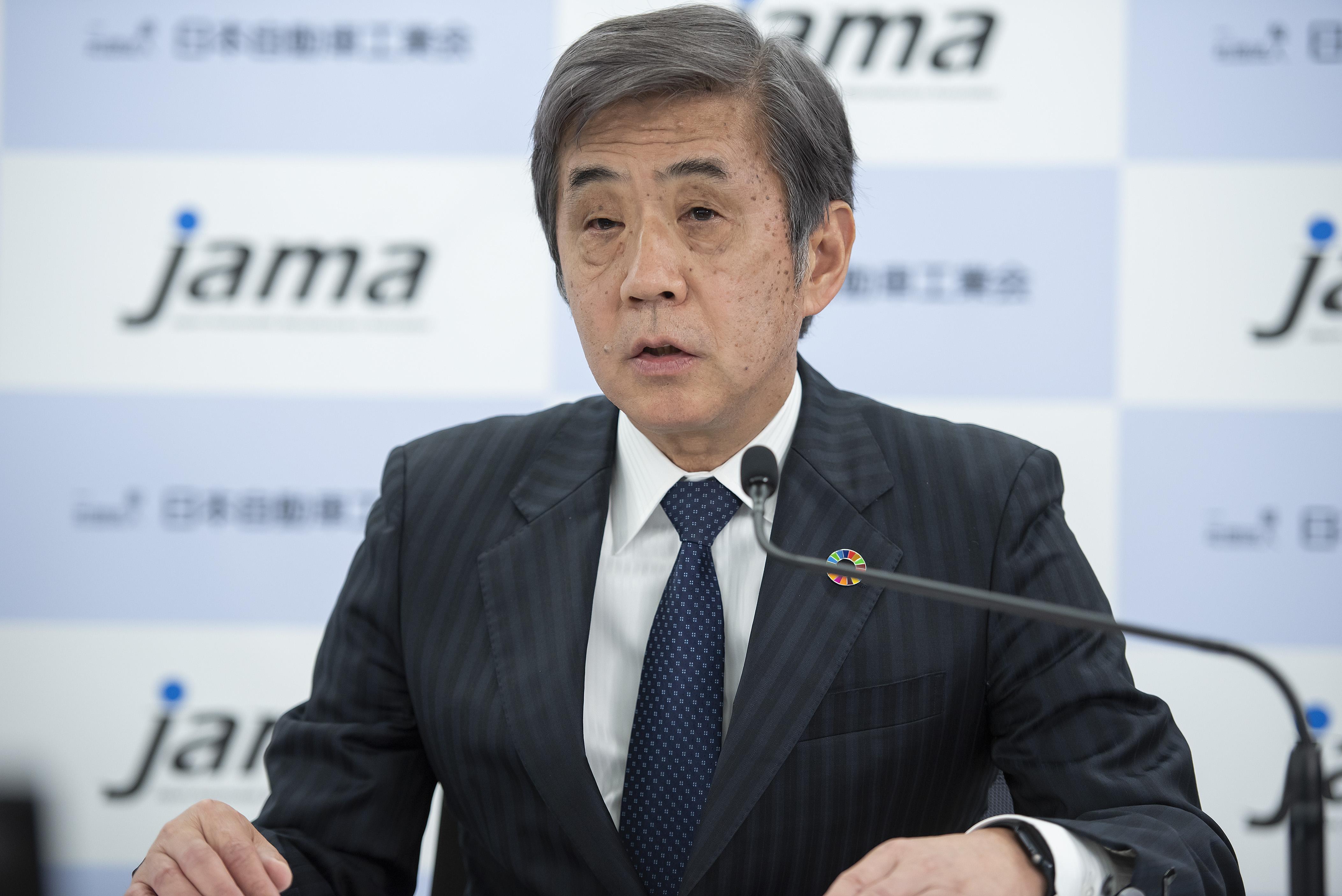
After announcing his resignation, Akio Toyoda has now said he will stay on as JAMA chairman. Toyota Times sheds light on this change.

Alongside Toyota’s leadership change announcement, in late January, President Akio Toyoda indicated that he would also step down as chairman of the Japan Automobile Manufacturers Association (JAMA). After being asked to stay on, however, he is determined to remain in the role.
On March 23, JAMA held an online press conference to explain the situation.
The Q&A session also touched on May’s Group of Seven (G7) summit in Hiroshima and the Japan Mobility Show planned for this fall.
Shedding light on the situation, and the way forward
Akio was joined at the press conference by all six JAMA vice chairmen, as well as incoming Toyota President Koji Sato, who is set to take on a vice chairman position in the coming fiscal year.

Vice Chairman Masanori Katayama got proceedings underway.
Vice Chairman Katayama (Isuzu)

Until now, the Japan Automobile Manufacturers Association has been run under the leadership of Chairman Toyoda.
From the new fiscal year starting April 1, we have decided to strengthen the organization by having the vice chairmen tackle challenges as a team. Our aim is to further accelerate JAMA’s evolution and establish a structure that enables truly sustainable growth.
The new structure will see the chairman and vice chairmen working as one to lead Japan’s auto industry, with its full lineup ranging from heavy-duty and minivehicles to motorcycles. Vice Chairman Katayama followed up by outlining JAMA’s upcoming management reforms.
Since January, when Chairman Toyoda indicated that he would step down as chairman, JAMA’s directors have been discussing two major challenges.
The first is the issue of succession following Chairman Toyoda's resignation. The second challenge is solving JAMA’s management issues, which Chairman Toyoda’s decision has brought to the fore.
With regard to Chairman Toyoda’s resignation, from a very early stage the directors were unanimous in wanting him to stay on.
To give a little more detail, at a meeting of JAMA vice chairmen in late January (1/26), Chairman Toyoda expressed his intention to step down as chairman.
After he left the meeting, the vice chairmen discussed the situation. We agreed that, since Chairman Toyoda has led various reforms as the auto industry grapples with a sense of crisis spurred by rapid changes in the surrounding environment, we hoped he would continue these efforts until the end of his term (in May 2024). All the vice chairmen reached the consensus that we should ask him to stay on.
At the same time, faced with the resignation of a chairman who knew this environment better than anyone else, the vice chairmen concluded that, if we are asking him to remain in office, we need to be prepared to run JAMA with a more unified management structure. This falls under our second challenge of management reforms at JAMA.
Given the significance of this issue, we felt it necessary to ascertain the views of all directors and held an emergency board meeting in early February. Despite the sudden meeting, surprisingly all the directors were able to attend in person and unanimously asked Chairman Toyoda to reconsider his resignation.
We also agreed that, for JAMA to continue evolving sustainably, the vice chairmen need to run the organization as a unified team.
Since then, the vice chairmen have led lively discussions on JAMA management reforms. Then, yesterday, with all the vice chairmen present, we formally presented our request that Chairman Toyoda remain in his role, along with our direction for management reforms. As a result, Chairman Toyoda has agreed to stay on.
With regard to the reforms, we will strengthen the structure such that the vice chairmen discuss and tackle future challenges as a team, leading the way on key issues.
We would like the chairman to devote his time to sustaining the 5.5 million people across Japan’s automobile industry. At the same time, we would like Toyota’s incoming President Sato to work with us as vice chairman to support Chairman Toyoda.
Moving forward, we want the vice chairmen to take ownership of the challenges we face, bringing JAMA together to contribute to the development of Japan’s automobile industry.
At today’s board meeting, we reported the situation and outcomes, receiving unanimous approval.
The result is that Chairman Toyoda has agreed to remain in office. All of the directors feel that, as JAMA embarks on management reforms, we would like Chairman Toyoda, with his vision and experience, to steer the way forward for another year.
Over this year, the directors are committed to working together to create a sustainable, constantly evolving JAMA.
